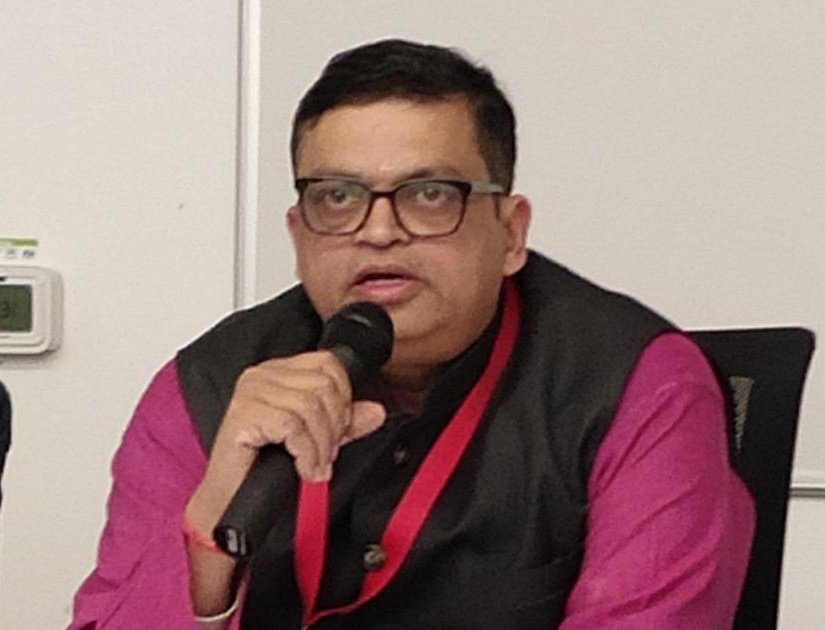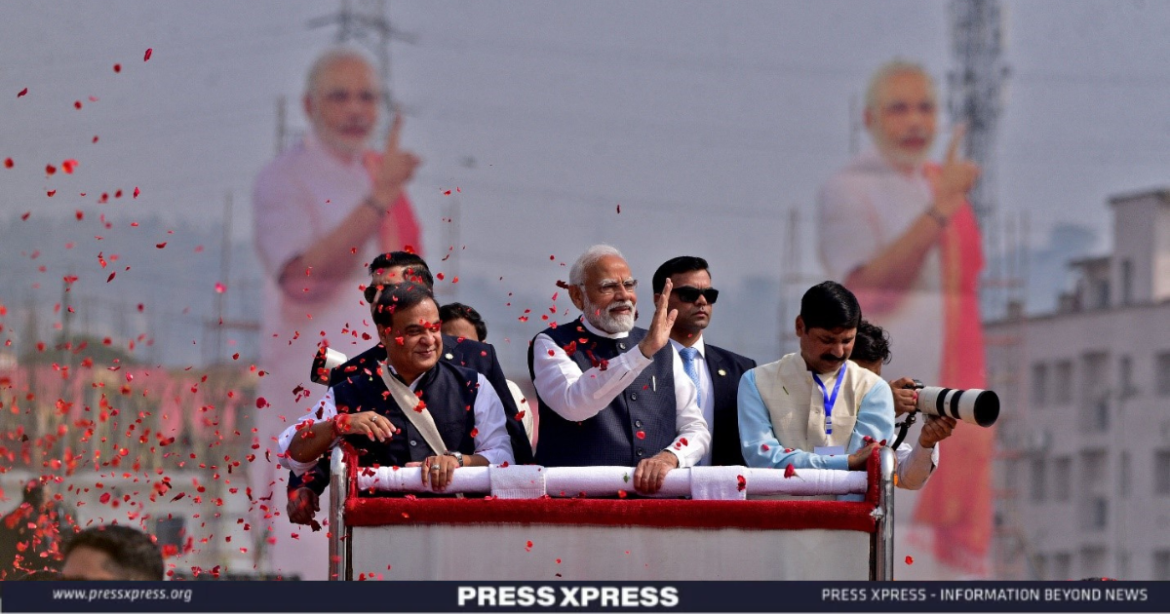Key highlights:
- Modi assured that India will climb to the world’s third-largest economy from fifth if he wins the election
- The Occupational Code consolidated 13 laws concerning workplaces and working conditions, rebranding various workplaces as ‘establishments.’
- With the enactment of the Social Security Code, all unorganized sector workers were unified, abolishing the minimum threshold requirement for establishments under social security laws.
- The Industrial Relations (IR) Code introduced reforms for factories, especially those of the older industry type, addressing demands for greater flexibility in ‘hire and fire’ policies and factory closures.
Peasants are always playing a crucial role in the Indian election, and to ensure victory, every political party pays caring attention to their rights. Gopal Krishna Agarwal, a spokesperson for Bharatiya Janata Party (BJP) said on Tuesday, February 13, that Indian Prime Minister Narendra Modi might prioritize labor reforms, passed by parliament in 2020 if he secures the upcoming general elections as most polls predict. As an opposition coalition falters, Modi’s nationalist BJP is likely to win the next general election due by May, according to opinion polls.
You can also read: How Narendra Modi Making India A Welfare State
Modi stated last week that he would make “big decisions” in his next term to eradicate poverty and boost economic growth, but he did not elaborate. He has assured that India will climb to the world’s third-largest economy from fifth if he wins the election.
New labor codes were approved by both houses of parliament in 2020, but they have not been enforced yet due to opposition from worker unions who reject the provisions that allow easier hiring and firing and limit trade unions. Modi’s government, however, argues that consolidating 29 different laws into 4 labor codes will guarantee that all of the over 500 million workers in India get a minimum wage, while a large segment will also receive social security.
“We will do it. It’s necessary. Labour codes need to be notified. Continuous reforms are needed to become an economic powerhouse and a global leader. They are waiting for the elections to be over to implement these. But we will stage nationwide protests in the coming days against the government’s anti-labour policies.”
– BJP spokesperson Gopal Krishna Agarwal

Agarwal further said another focus if Modi gets an uncommon 3rd consecutive term- would be bilateral trade deals with countries. India is already in talks with countries, including its former colonial ruler Britain, for free trade agreements.
India’s Giant Leap in Labor Legislation
India’s Labor Reforms
Wage Code:
- Previous Laws: 4
Social Security Code:
- Previous Laws: 9
Occupational Safety, Health, and Working Conditions Code of 2020:
- Previous Laws: 13
Industrial Relations Code:
- Previous Laws: 3
In July 2019, the Indian Parliament approved the Code on Wages, followed by the passage of the Occupational Safety, Health and Working Conditions Code, the Industrial Relations Code, and the Code on Social Security in September 2020.
The Central Government has combined 4 laws into the Wage Code, 9 laws into the Social Security Code, 13 laws into The Occupational Safety, Health, and Working Conditions Code of 2020, and 3 laws into the Industrial Relations Code to uphold workers’ minimum wage rights.
Termed as the most significant labor reforms since India’s independence, the government hailed the codes as beneficial to over 50 crore workers. The Factories Act of 1948, considered the cornerstone of labor laws in India, only applied to approximately 2 lac operational factories in 2020, employing 1.31 crore workers.
With the new Wages Code, the definition of ‘worker’ was broadened to encompass individuals employed in any capacity, whether manual, unskilled, skilled, technical, operational, clerical, or supervisory, for hire or reward. Additionally, the expanded definition of ‘employee’ included those in administrative and supervisory roles.
The New Face of Labor Laws
The Occupational, Health, and Working Conditions Code consolidated 13 laws concerning workplaces and working conditions, rebranding various workplaces as ‘establishments.’ It streamlined the registration process for workplaces, making it mandatory for all under a single definition, albeit presenting a patchwork approach.
Occupational, Health and Working Conditions Code:
- Consolidated 13 laws on workplaces and working conditions.
- Rebranded workplaces as ‘establishments.’
- Streamlined registration process for workplaces.
- Introduced a patchwork approach.
With the enactment of the Social Security Code, all unorganized sector workers were unified, abolishing the minimum threshold requirement for establishments under social security laws. It encompassed workers of the modern economy like ‘platform workers’, ‘home-based workers’, and ‘gig workers’ within the benefits framework for workers and employees, significantly broadening coverage and benefits.
This regulation was revised to encompass unorganized workers and individuals in emerging fields, granting them benefits such as the Employee’s Provident Fund (EPF) and the Employees’ Pension Scheme (EPS) irrespective of their establishment’s coverage status. Furthermore, the Code established electronic registration of establishments to potentially create India’s complete database of establishments and workers, encompassing all unorganized workers.
Social Security Code:
- Unified unorganized sector workers.
- Abolished minimum threshold requirement for social security laws.
- Extended benefits to ‘platform’, ‘home-based’, and ‘gig’ workers.
- Provided Employee’s Provident Fund (EPF) and Employees’ Pension Scheme (EPS) benefits.
The Industrial Relations (IR) Code introduced reforms for factories, especially those of the older industry type, addressing demands for greater flexibility in ‘hire and fire’ policies and factory closures. IR Code exempted enterprises with less than 300 workers from many restrictive conditions, such as mandatory certification of standing orders and the need for prior permission before layoff, retrenchment, and closure.
It also mandated a 14-day notice period for strikes and lockouts in all industrial establishments and brought casual leave within the scope of ‘strike’, aiming to prevent its misuse. Additionally, the Code streamlined labor negotiations by mandating that only a trade union with the support of 51% or more workers would be allowed to participate, eliminating the multiplicity of negotiating trade unions.
Industrial Relations (IR) Code:
- Introduced reforms for factories, especially older ones.
- Allowed greater flexibility in ‘hire and fire’ policies and factory closures.
- Exempted enterprises with less than 300 workers from certain restrictive conditions.
- Mandated a 14-day notice period for strikes and lockouts.
- Streamlined labor negotiations with 51% or more worker-supported trade unions.
Modi’s Third Term Agenda: Completing India’s Labor Law Transformation
Once officially gazetted in 2020, the codes necessitated the creation of rules before the government could select an appointed date for their activation. These codes operate through the authority of the ‘appropriate government.’
All government institutions and public sector enterprises, along with Railways and related contractors, fall under the purview of the central government as the designated authority. The state government assumes this role for the remaining establishments, which account for nearly 99%. Consequently, both central and state governments/union territories (UT) were expected to establish the rules outlined in the codes.
The central government swiftly formulated the rules and made them available for public feedback from August 2020 to November 2020. The majority of states and UTs (24 as of the latest count) have also developed all the necessary rules. Only 4 states have yet to establish any, while others have implemented some but not all of the rules.
Accordingly, Modi is hopeful that a third term would allow the government to complete the consolidation of 29 labor laws into 4 codes, a task that was left incomplete earlier.
With India’s progress, a redefined labor environment awaits. Modi’s third term embodies the culmination of our drive towards a more equitable and prosperous nation, epitomized by labor laws rooted in progress and inclusivity.


